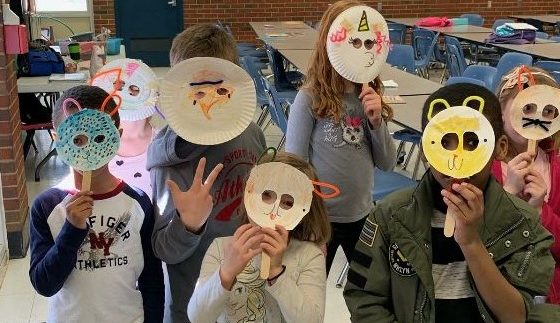After School Program
Since 2003 Kimoyo’s Afterschool Education Program has been involved with the Roanoke City Schools, Boys and Girls Club and the YMCA afterschool programs to mention just a few. Over the years Kimoyo has touched thousands of children’s lives with a view to the ancient kingdoms of Ghana, Mali and others. Our expertise in Ghanaian culture provides the perfect vehicle for teaching important concepts like cultural tolerance and global citizenship. Fostering an appreciation through art, history, and storytelling gives us tools to enable young students to develop a greater sense of their identity in an increasingly diverse global community.

Kimoyo is currently redesigning our afterschool education program to address a deepening need for conversations around diversity within our community. We are adding a new component which will include how to have conversations and build tools to facilitate the development of respect for different cultures and races within our own Roanoke Valley. Our program is being designed to create a skill set that includes tools and language to talk about difficult situations and to continue to lay the groundwork for strengthening and validating the important place of diversity in our society. We are committed to both a local and global consciousness of inclusion and we believe it is essential that the process begins early for understanding and compassion.
Kimoyo Cup
The Kimoyo Cup in partnership with Virginia Blue Ridge Soccer Club gives Kimoyo LTD., a chance to reach a wider and more diverse population in the Roanoke Valley and beyond. The cup is important as it generates corporate sponsorships as well as slightly used soccer balls, shin guards, shoes and uniforms from hundreds of young people from surrounding states. It is a great venue to expose both our local work in the Roanoke Valley and our international work with girls through our soccer-literacy programs in Ghana. The slightly used equipment and uniforms that are given in this tournament by the players are distributed to 120 junior high girls in four villages in the upper East region of Ghana who normally would not be able to afford even a soccer ball, much less shoes and uniforms.


